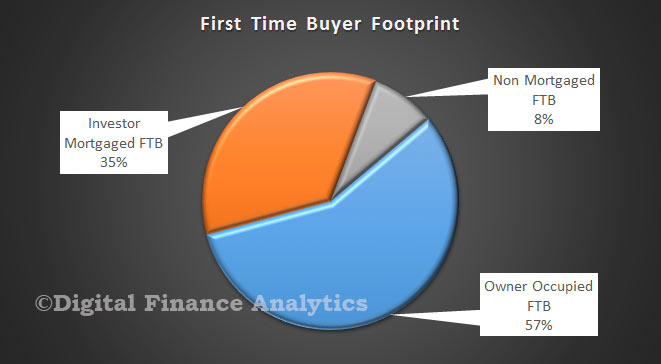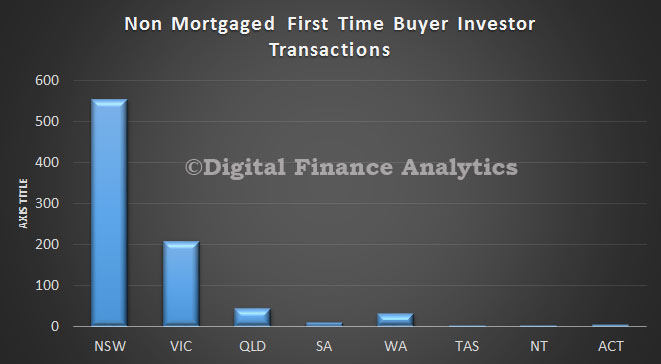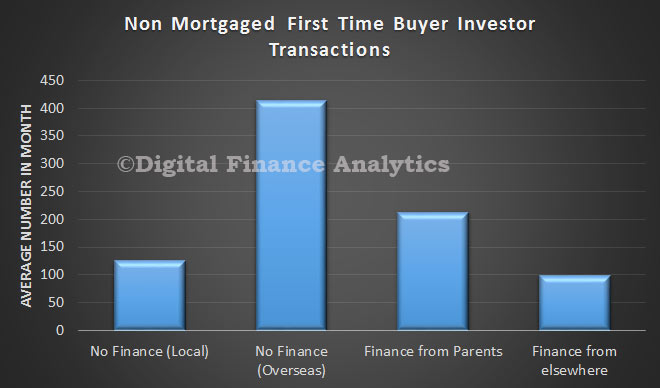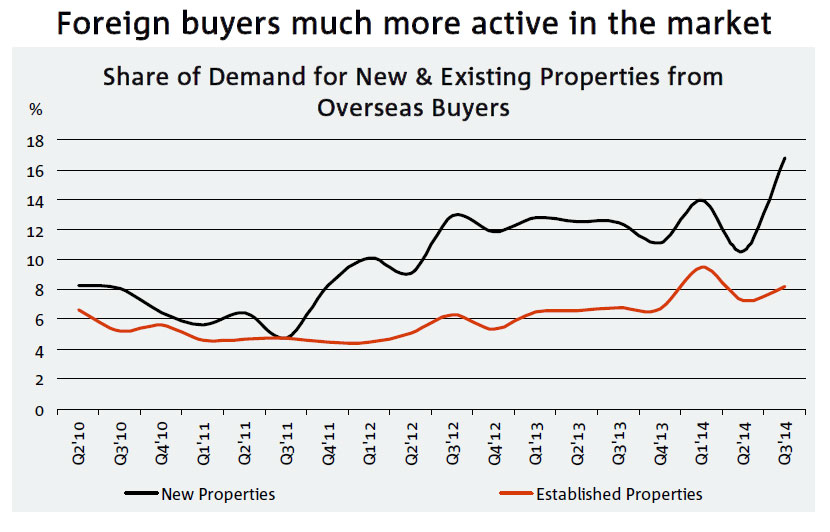Over the next few days we will be posting the results of our latest household surveys. We are going to start with the hot investment segment, and look specifically at the vexed question of the proportion of overseas investors buying investment property for the first time. This is a tough data set to capture, because by definition such households are hard to contact, or prefer not to talk and they do not use an Australian mortgage. However, we devised a proxy set of questions focussing on funding sources, and as a result we now have a view of the proportion of first time investors in the market, and the overseas mix.
Taking the January data as a starting point, ABS tells us that there were 5,961 loans to owner occupied purchasers. In addition, we identified a further 3,661 first time buyers getting a mortgage for investment purposes. These amount to 35% of loans who are not identified as first time buyers in the ABS data, but are in the overall loan volume data. 8%, or 850, require no mortgage at all, and do not show in the mortgage statistics. We would need reliable purchase transfer records to get at the true picture, something not readily available.
 From our surveys we teased out the funding options that first time buyers went with. 36% of deals used an interest only mortgage, 41% used a standard repayment mortgage, but the rest, 850 transactions (8%) did not require mortgage funding from an Australian bank but rather used other sources including parents, or were an overseas purchase.
From our surveys we teased out the funding options that first time buyers went with. 36% of deals used an interest only mortgage, 41% used a standard repayment mortgage, but the rest, 850 transactions (8%) did not require mortgage funding from an Australian bank but rather used other sources including parents, or were an overseas purchase.
 We can dissect these purchases based on funding. About 125 were local purchasers without finance, over 200 were financed by parents and under 100 financed from other sources. However the most significant number was the 415 by overseas investors, using funding from offshore.
We can dissect these purchases based on funding. About 125 were local purchasers without finance, over 200 were financed by parents and under 100 financed from other sources. However the most significant number was the 415 by overseas investors, using funding from offshore.
Looking at these 850 transactions through the lens of our surveys, we found that more than 550 were in NSW, more than 200 in VIC and a few sprinkled across the other states. This equates to about 4% of all first time buyers and 9.2% of investor first time buyers. Enough to more than move the dial, especially given the concentration in Sydney.
 Next time we will look at investor motivations, and future plans. We think the investment housing boom is likely to continue to run, as more investors get the bug.
Next time we will look at investor motivations, and future plans. We think the investment housing boom is likely to continue to run, as more investors get the bug.


